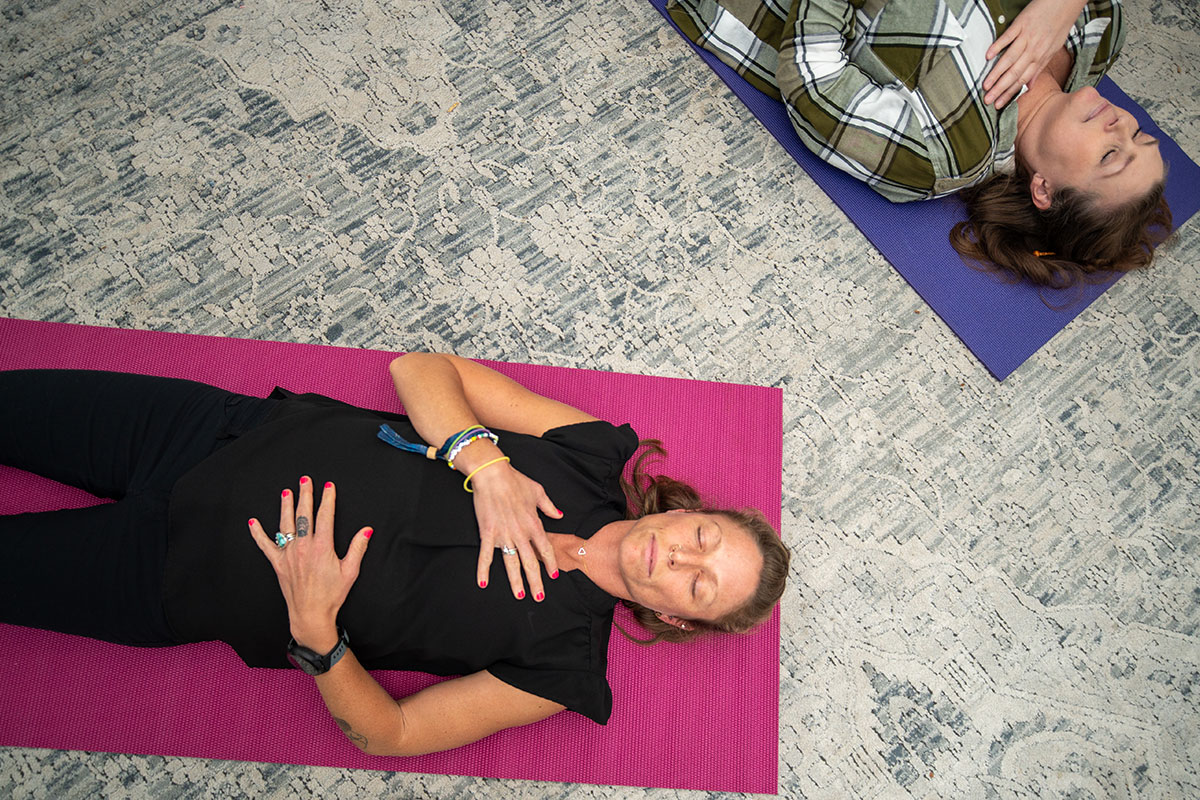Marijuana Addiction in Women
 Over the years, marijuana abuse has been increasing at alarming rates. In the U.S., people have a casual view of everyday marijuana use. In reality, there are certain negative effects associated with marijuana use that aren’t highlighted in the media or the news, and this is why it still falls under the classification of drug abuse.
Over the years, marijuana abuse has been increasing at alarming rates. In the U.S., people have a casual view of everyday marijuana use. In reality, there are certain negative effects associated with marijuana use that aren’t highlighted in the media or the news, and this is why it still falls under the classification of drug abuse.
As a result, there has been a large influx in marijuana use disorder, which often gets overlooked. Even with several marijuana addiction treatment centers, many people don’t see the problems with marijuana use. Hundreds of thousands of women each year abuse marijuana and become dependent on it.
A Confusing Legality
Many people end up disregarding the addiction because of marijuana’s selective legality and availability. Claims of “medical marijuana” when it really is used as a recreational drug are also to blame for the rise of illicit marijuana use. Regardless of use, it’s important to know the long-term potential dangers.
If you or a loved one is suffering from marijuana addiction, it’s not too late to get help. New Directions for Women is ready to guide you on your journey to recovery. Our marijuana addiction treatment center in California is specialized and created with you or a loved one in mind. Don’t wait for the drug abuse to get out of hand, get help today.
Signs of a Substance Abuse Disorder (Marijuana)
When it comes to marijuana abuse, or cannabis use disorder, as some might refer to it, and other substances, it is important to be able to identify the different signs of a problem. This typically comes in the form of specific criteria to effectively spot an abuse disorder. While marijuana may be considered less of an addictive substance compared to others, it is one of the most widely abused today.
Take an honest look at the criteria below to determine if you or a loved one may be suffering from marijuana use disorder and might be needing marijuana detox:
- Cravings/urges for marijuana use
- Using a larger amount of marijuana than intended or needed
- A desire to quit smoking/ingesting weed but not being able to
- Spending long periods of time using/recovering from marijuana use
- Failing to manage work, or schoolwork because of the cannabis use
- Continuing to use marijuana even when it is causing problems in your life
- Ignoring or missing recreational or occupational activities to get high
- Disregarding own safety for marijuana use
- Tolerance of marijuana use over time
- Experiencing withdrawal symptoms when you stop using marijuana (and can only be relieved by using it again)
- Continuing to use marijuana regardless of physical or psychological consequences
If you meet two to three of these pointers, that might be considered a mild substance use disorder. It might be signs of moderate substance abuse if you meet four to five. If you meet six or more, you likely have a severe marijuana use problem. It’s worth noting that the more severe your disorder, the harder it is to quit and recover.
If you are seeking validation on whether you are indeed into marijuana abuse, always remember that it would be best to consult professionals who know how to assess a person’s use, or misuse, of a substance. Do not seek validation from relatives, friends, or anyone else who is not a trained medical professional in this concern.
 The Effects of Marijuana Use on Women
The Effects of Marijuana Use on Women
As with most other drugs, marijuana has its own set of effects on the person. While many of these are short-term, there are long-term consequences to smoking marijuana as well. Tetrahydrocannabinol (THC) is one of the main chemicals in marijuana. THC is what gives the user that feeling of being “high.” The amount of THC varies depending on the type of marijuana a person is using.
Some of the immediate effects of using marijuana include the following:
- Dry mouth
- Loss of coordination and balance
- Feeling giggly and laughing a lot
- Rapid/Increased heartbeat
- Sense of relaxation
- Difficulty thinking or concentrating
- Impaired reaction time
- Red or bloodshot eyes
- Increased heart rate and blood pressure
- Spike in appetite/hunger
- Acute anxiety and paranoia
If a person becomes addicted or continues with marijuana use, they may run into several negative long-term health concerns. These effects will definitely be evident on a person’s health along with other aspects of their life.
Long-term consequences of marijuana use include:
- Cognitive impairment
- Affected brain development (especially those who start young)
- Potential harm to the fetus for pregnant women
- Problems at school, at home, and at work
- Respiratory infections (chronic bronchitis, pneumonia, etc.)
- Chronic psychosis disorders
- Risk of accidents
- Heart problems
- Other symptoms associated with mental health issues
- Susceptibility to other drug use
Building a Dependence on Marijuana
When someone is into drug use long enough, their body adjusts to its effects. If a person were to stop using the drug (in this case marijuana addiction), their body would react to it. This is because the body has grown a dependence on it.
When it comes to marijuana, high amounts of THC strains (cannabis) lead a person to become addicted and dependent on it. This can start to affect a person’s life and makes it extremely hard for them to kick the habit.
Marijuana use disorder occurs when someone becomes dependent on it. When not able to get a “hit”, a person may begin to struggle throughout the day, experience disrupted sleeping patterns, exhibit irritability, show signs of restlessness, and have a general lack of pleasure. It can be extremely tough to quit the habit once you’ve become addicted to marijuana.
This is where the help of marijuana rehab and treatment centers like NDFW come in. At our trustworthy marijuana addiction treatment center in California, you can begin to ease into a clean and focused life, finally free of mental health concerns.
Marijuana Withdrawal Symptoms
When you’re dependent on marijuana and you suddenly stop using it, your body reacts to it. To deal with the pain and stress of withdrawal, many slip into relapse. Trying to quit could bring the following:
- Dizziness
- Anxiety
- Cravings
- Anger
- Headaches
- Loss of appetite
- Sexual dysfunction
- Depression
- Nightmares
- Mood swings
- Problems concentrating
- Insomnia
- Irritability
These symptoms vary with users, but those who have used marijuana long enough and frequently tend to have more severe effects. It could become a psychological addiction as well and pave the way for other substance use disorders. Behavioral issues could require more intensive treatment like cognitive behavioral therapy or motivational enhancement therapy.
Dependence and addiction to marijuana can be problematic, making it tough to quit. This is why you need to get treatment for marijuana addiction from a proper drug rehab or treatment center.
Receiving Marijuana Addiction Treatment for Women
As with concerns with other drugs, it’s important to get help sooner rather than later, and Marijuana is no exception. At the end of the day, it comes down to taking that first step to getting into a treatment program to start recovery. Fortunately, there are many different treatment programs available to you or a loved one. Addiction treatment for marijuana can be the key to a better and happier life. There are many marijuana addiction treatment centers that are ready to help.
Additionally, rehab centers like New Directions for Women have a selection of personalized treatment methods for addiction and mental issues that come with it. What will work best for you depends on the severity of your addiction (along with other factors). Let’s take a look at some of the treatment methods used at our marijuana addiction treatment center.
Detoxification
Detoxification is usually the first step of any addiction treatment. It’s a short-term treatment for marijuana withdrawal. The process lasts anywhere from three to 10 days and involves round-the-clock supervision. At NDFW, we’re by your side the entire way to answer all questions/concerns you may have about substance abuse treatment.
Detox essentially rids the body of a substance (in this case, marijuana). When it comes to marijuana abuse disorder, detox is especially useful. This is because, within the first section of the process, almost 90% of the psychoactive chemicals of marijuana are removed from the body. This shortens the treatment process substantially.
Inpatient Treatment
Inpatient treatment typically involves staying at a facility with around-the-clock support. This is best for cases of intense addiction. If you have had difficulties quitting or have tried without success in the past, we recommend inpatient treatment.
During the process, you’ll have access to therapists, counselors, and experienced staff all trained in behavioral therapy to help guide you. With 24/7 support and a distraction-free environment, Inpatient treatment is the most complete form of treatment.
It is not uncommon for people going through withdrawal to experience sudden and intense bouts of anxiety, depression, or even urges to seriously hurt themselves. This comes from the storm of emotions and sensations that were normally dulled by drug use. Inpatient treatment is ideal in these scenarios as professionals who know how to deal with such situations are immediately on hand and ready to handle it.
Intensive Outpatient Treatment
Intensive outpatient treatment (IOP) offers a bit of flexibility and doesn’t require you to live in a rehab center. IOP just requires weekly visits to the clinic for therapy sessions and other treatment methods. This allows you to keep in touch with your home life while getting treatment. Keep in mind, session frequency varies from case to case.
The entire point of rehabilitation is to prepare someone who got detached from their normal life by addiction to reintegrate with it once more. IOP treatment is a step in this direction, particularly during the time that the client is outside.
Start Your Recovery at New Directions for Women
At New Directions for Women, we focus on supporting women in their recovery from addiction and improving their mental health. Drug abuse, including marijuana abuse, affects hundreds of thousands of women every single year. Sadly, many people fail to reach out for professional and effective help. We strive to make sure you reach a better place in your life, for you and your family. Don’t wait to get help; contact our marijuana addiction treatment center in California today to learn more about our treatment plans and addiction resources.
